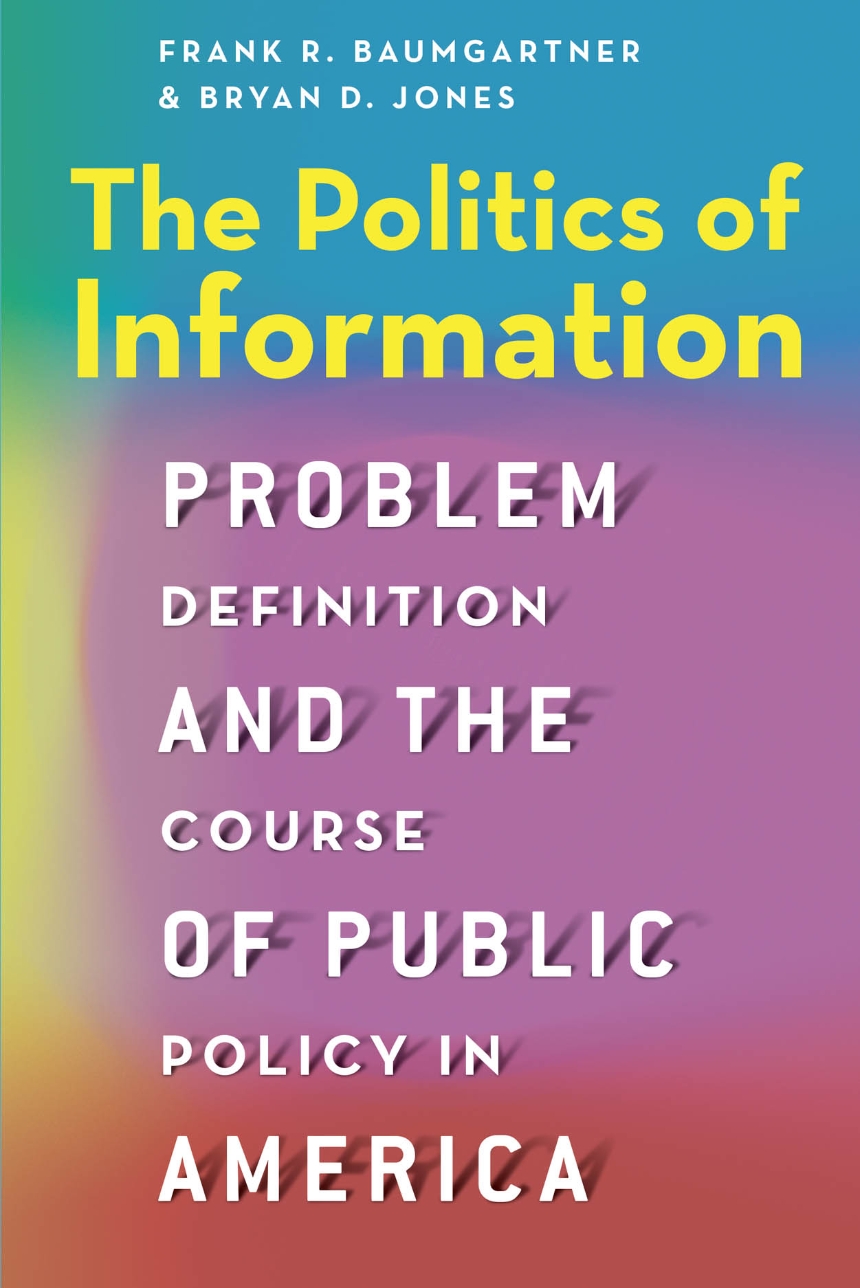The Politics of Information
Problem Definition and the Course of Public Policy in America
9780226198125
9780226198095
9780226198262
The Politics of Information
Problem Definition and the Course of Public Policy in America
How does the government decide what’s a problem and what isn’t? And what are the consequences of that process? Like individuals, Congress is subject to the “paradox of search.” If policy makers don’t look for problems, they won’t find those that need to be addressed. But if they carry out a thorough search, they will almost certainly find new problems—and with the definition of each new problem comes the possibility of creating a government program to address it.
With The Politics of Attention, leading policy scholars Frank R. Baumgartner and Bryan D. Jones demonstrated the central role attention plays in how governments prioritize problems. Now, with The Politics of Information, they turn the focus to the problem-detection process itself, showing how the growth or contraction of government is closely related to how it searches for information and how, as an organization, it analyzes its findings. Better search processes that incorporate more diverse viewpoints lead to more intensive policymaking activity. Similarly, limiting search processes leads to declines in policy making. At the same time, the authors find little evidence that the factors usually thought to be responsible for government expansion—partisan control, changes in presidential leadership, and shifts in public opinion—can be systematically related to the patterns they observe.
Drawing on data tracing the course of American public policy since World War II, Baumgartner and Jones once again deepen our understanding of the dynamics of American policy making.
With The Politics of Attention, leading policy scholars Frank R. Baumgartner and Bryan D. Jones demonstrated the central role attention plays in how governments prioritize problems. Now, with The Politics of Information, they turn the focus to the problem-detection process itself, showing how the growth or contraction of government is closely related to how it searches for information and how, as an organization, it analyzes its findings. Better search processes that incorporate more diverse viewpoints lead to more intensive policymaking activity. Similarly, limiting search processes leads to declines in policy making. At the same time, the authors find little evidence that the factors usually thought to be responsible for government expansion—partisan control, changes in presidential leadership, and shifts in public opinion—can be systematically related to the patterns they observe.
Drawing on data tracing the course of American public policy since World War II, Baumgartner and Jones once again deepen our understanding of the dynamics of American policy making.
264 pages | 48 figures, 8 tables | 6 x 9 | © 2014
Political Science: American Government and Politics, Public Policy
Reviews
Table of Contents
Preface
Acknowledgments
Part I “Seek and Ye Shall Find”
1 Search, Information, and Policy Agendas
2 Organizing for Expertise or Organizing for Complexity?
3 Information, Search, and Government
Part II Information and the Growth of Government
4 Th e Rise and Decline of Institutional Information Processing in the Executive and Legislative Branches
5 From Clarity to Complexity in Congress
6 The Search for Information and the Great New-Issue Expansion
7 The Thickening and Broadening of Government
8 Rounding Up the Usual Political Suspects
Part III The Implications of Information in Government
9 Organizing Information and the Transformation of U.S. Policy Making
10 Organizing Complexity
Appendices
References
Index
Acknowledgments
Part I “Seek and Ye Shall Find”
1 Search, Information, and Policy Agendas
2 Organizing for Expertise or Organizing for Complexity?
3 Information, Search, and Government
Part II Information and the Growth of Government
4 Th e Rise and Decline of Institutional Information Processing in the Executive and Legislative Branches
5 From Clarity to Complexity in Congress
6 The Search for Information and the Great New-Issue Expansion
7 The Thickening and Broadening of Government
8 Rounding Up the Usual Political Suspects
Part III The Implications of Information in Government
9 Organizing Information and the Transformation of U.S. Policy Making
10 Organizing Complexity
Appendices
References
Index
Awards
International Public Policy Association: Best Book in Public Policy
Won
National Academy of Public Administration: Louis Brownlow Book Award
Won
